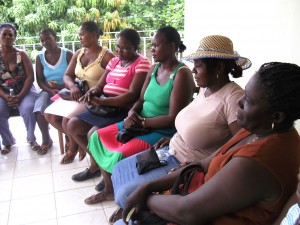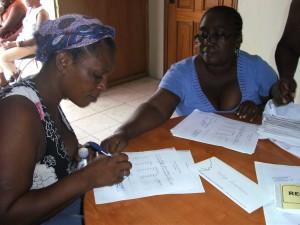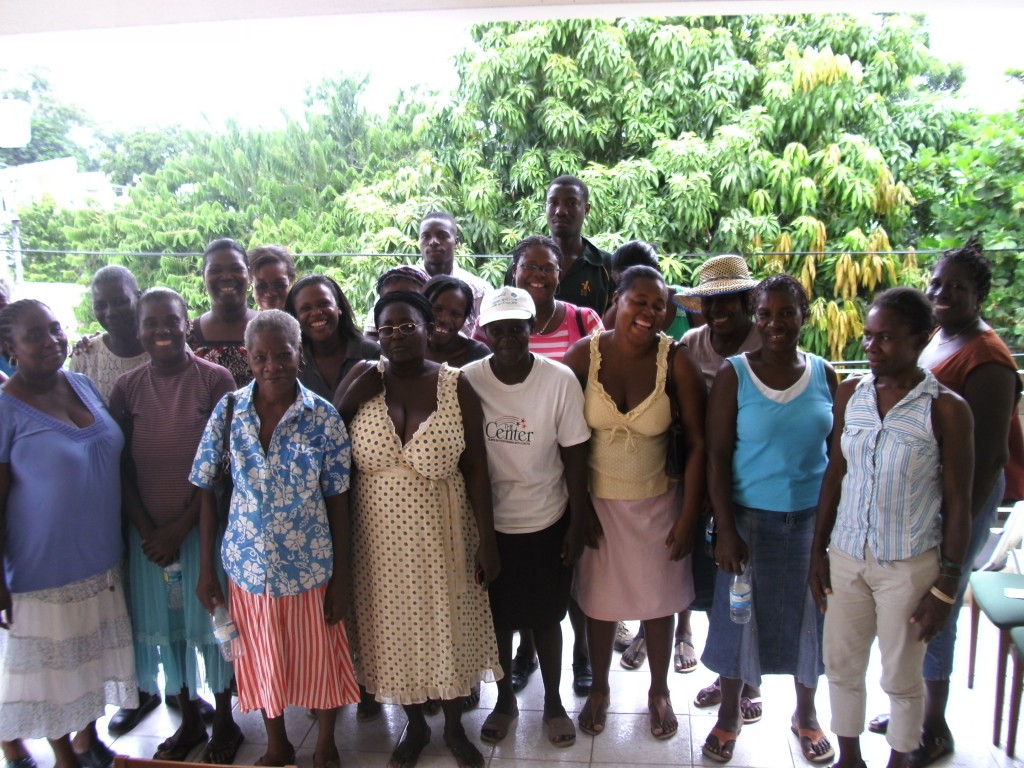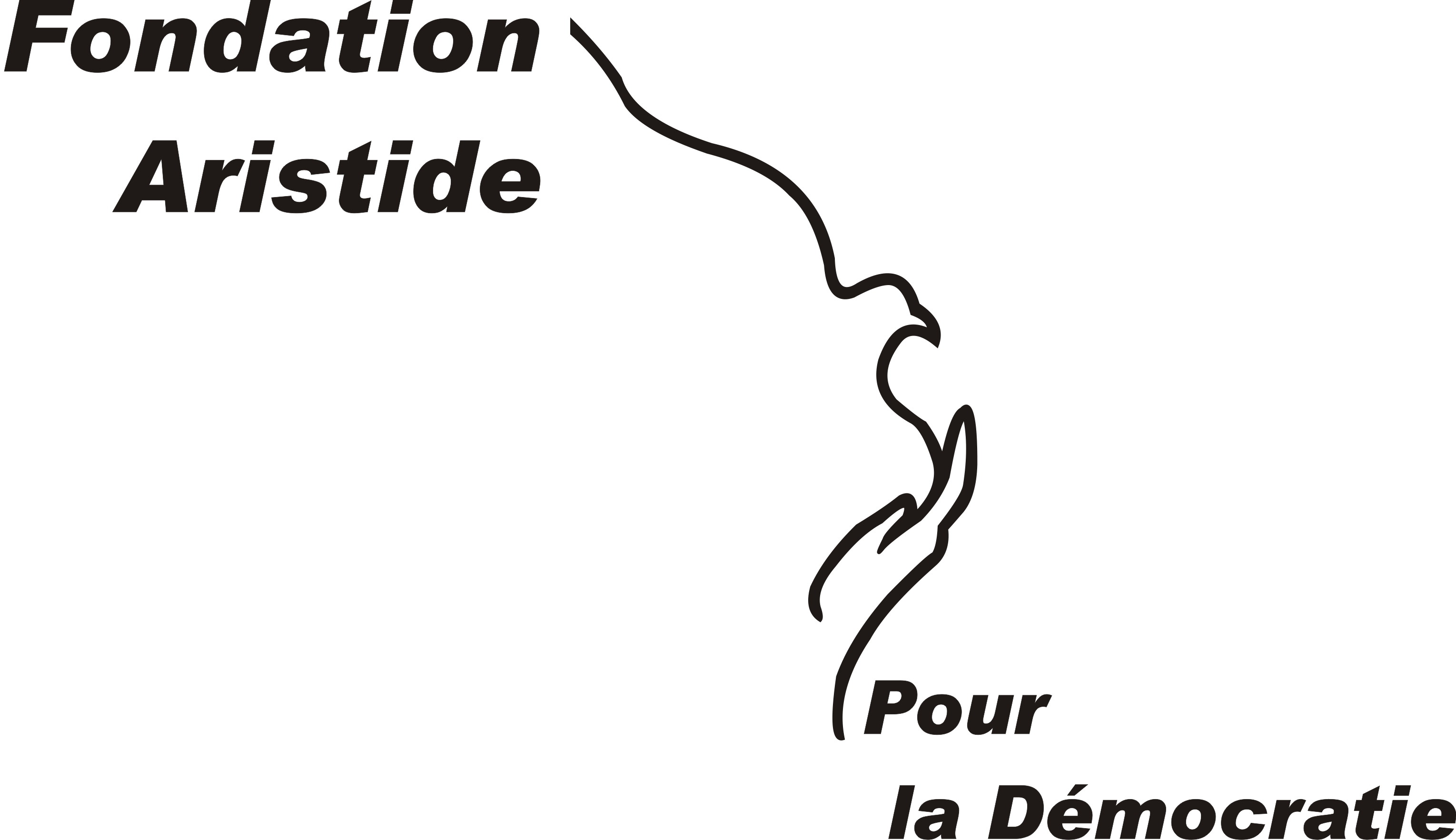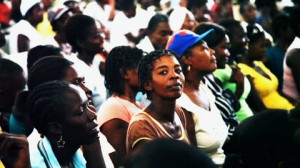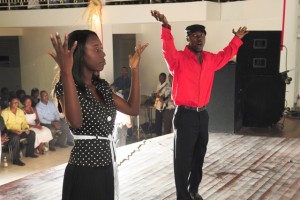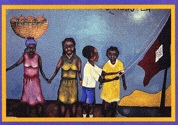Market Women – the Heart of the Nation
Marie José Paul, a recipient of a loan from the Aristide Foundation, in front of her business.
This past August sixty market women gathered at the Aristide Foundation for Democracy to plan and discuss the opening of a micro-lending initiative. The earthquake had a devastating impact on the small businesses of the woman gathered. Many had lost homes, businesses and/or inventory. Almost all were living in tents or other temporary housing and lacked the funds to restart any commerce to support their families.
Since its inception in 1996 the Foundation has worked closely with women in the informal sector, making loans, selling food at low prices, and helping them to build organizations to advocate on their behalf. This summer with assistance from Haiti Emergency Relief Fund the AFD launched a women’s micro-lending project with a small loan fund of $7,000. A first group of 20 women received further training in early September, after which loans were made on September 8, 2010. Each woman received a loan of 12,000 gourdes ($300US). Interest on the loans is 5% (bank interest rates are 20%-30%). The loans are for a five-month period, with early repayment allowing them to pay less interest. The project is directed by Gladys Delouis, a long-time organizer with the AFD, and overseen by Director Toussaint Hilaire.
The 20 women who received loans sell their goods at the markets of Croix-des-Bouquets, Croix-de-Missions, Croix Brossals (the main market in downtown Port-au-Prince), Tabarre and Cite Soleil. The small businesses they launched with the loans include: selling cooked food by the plate (manje kuit), selling raw food (manje kri), fried snacks (mange fritay) as well as selling charcoal (marchand charbon) and clothing (marchand vetman). A couple of the women in the group, who live in La Plaine and have access to land, borrowed money to plant quick growing food stuffs which they plan to harvest and sell. Of the 20 women who received loans, 17 are the sole providers for their families.
The markets where these women sell their goods are the commercial hubs of their communities. In these markets, and many others across Haiti, thousands and thousands of men and women work, and many more thousands of Haitians buy their daily necessities. Historically, the markets that serve Haiti’s poor majority were ad-hoc, unplanned, and dirty. While Aristide was President from 2000-2004 fifty-three public market places across the country were constructed or repaired—including all of the markets listed above, where the women in this project work. Clean and dignified stalls were created for vendors, roofs, drainage, and toilets were put in. Public literacy centers, and medical clinics were set up inside the markets for the benefit of both sellers and customers. Since the coup in 2004, most of these facilities have fallen into disrepair because the state does not bother to maintain them. Programs like the marketplace literacy centers and health centers were abruptly abandoned—facts well know in on the ground in Haiti, if virtually ignored internationally.
Since September, the 20 women in the micro-lending project have been meeting at the Foundation every 15 days, to check in, share ideas and continue to shape the program.
